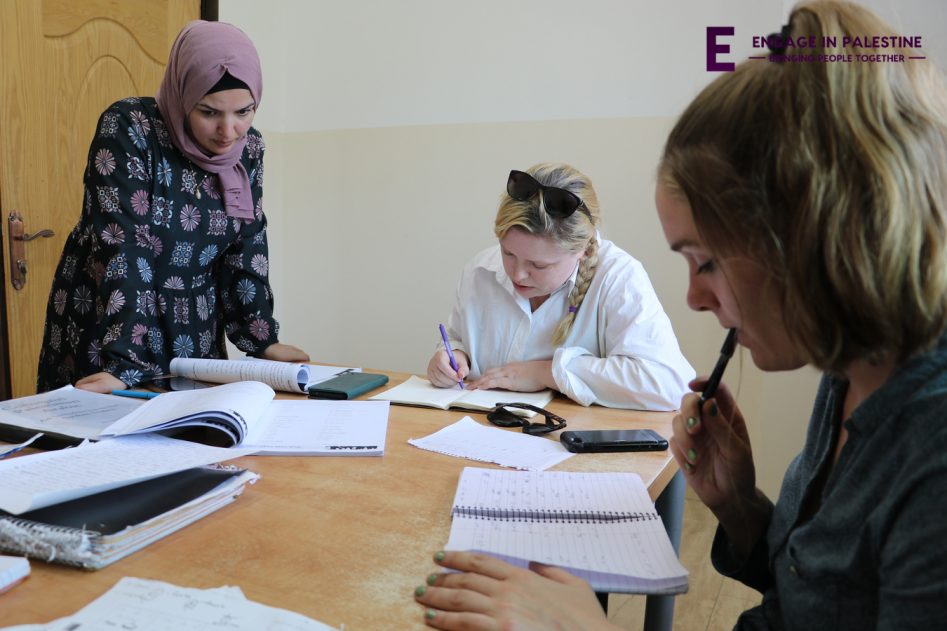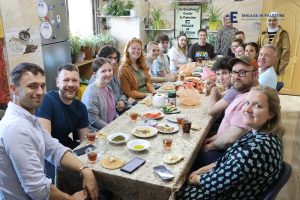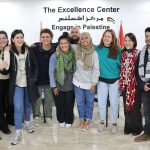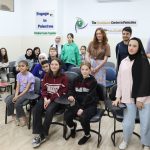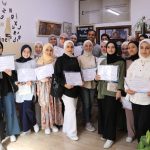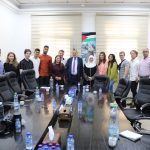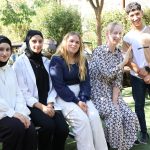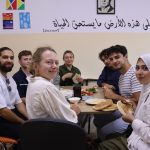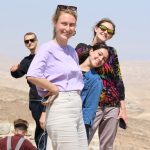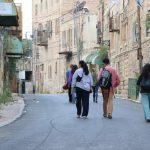Study Modern Standard Arabic (MSA): Engage in Palestine offers Super-Intensive, Intensive, and Non-Intensive MSA courses, tailored to six proficiency levels, from absolute beginner to advanced. Modern Standard Arabic (MSA), also known as الفصحى (Fus-ha) or Literary Arabic, is the formal, standardized version of Arabic used in writing, media, and formal communication across the Arab world.
As the foundation for all Arabic dialects, including Levantine, Ammiya, Egyptian, and North African, MSA is an essential choice for learners aiming to master the Arabic language in its full regional context.
Table of Contents
Modern Standard Arabic (MSA) Courses for 2025-2026
Engage in Palestine is pleased to announce the availability of flexible and personalized Modern Standard Arabic (MSA) courses, including summer programs, winter Arabic lessons, and online courses, for the 2025-2026 academic year.
Our courses for 2025/2026 are delivered through tailored one-on-one online sessions, small group lessons, or private in-person classes, ensuring a comprehensive and immersive learning experience. MSA, the formal standardized Arabic used across the Arab world, provides an essential foundation for mastering the language and serves as a stepping stone to understanding various regional dialects.
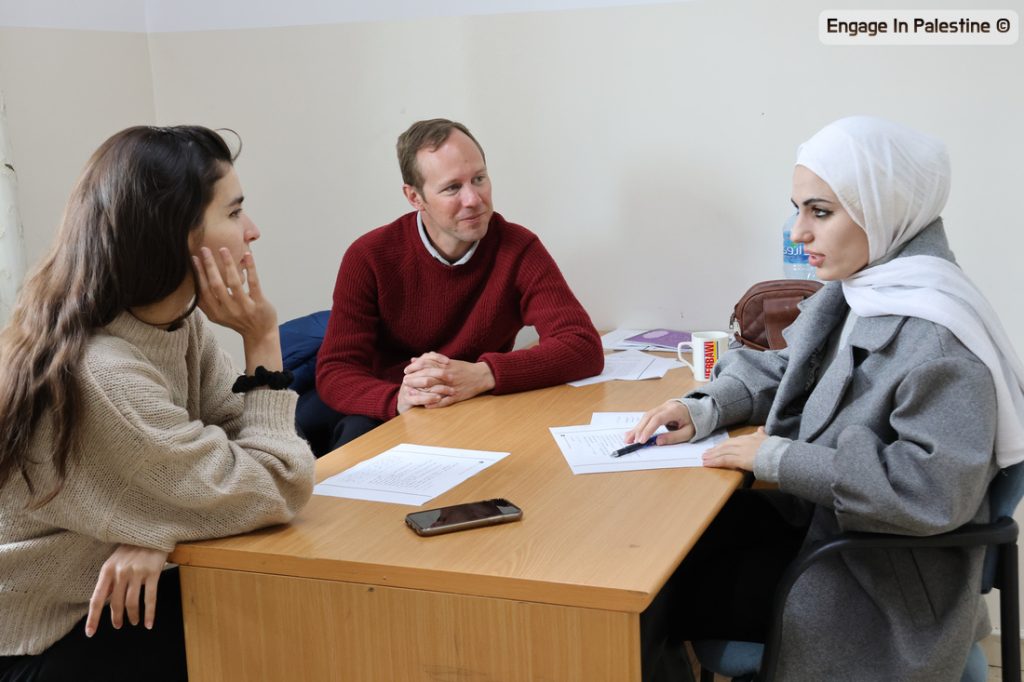
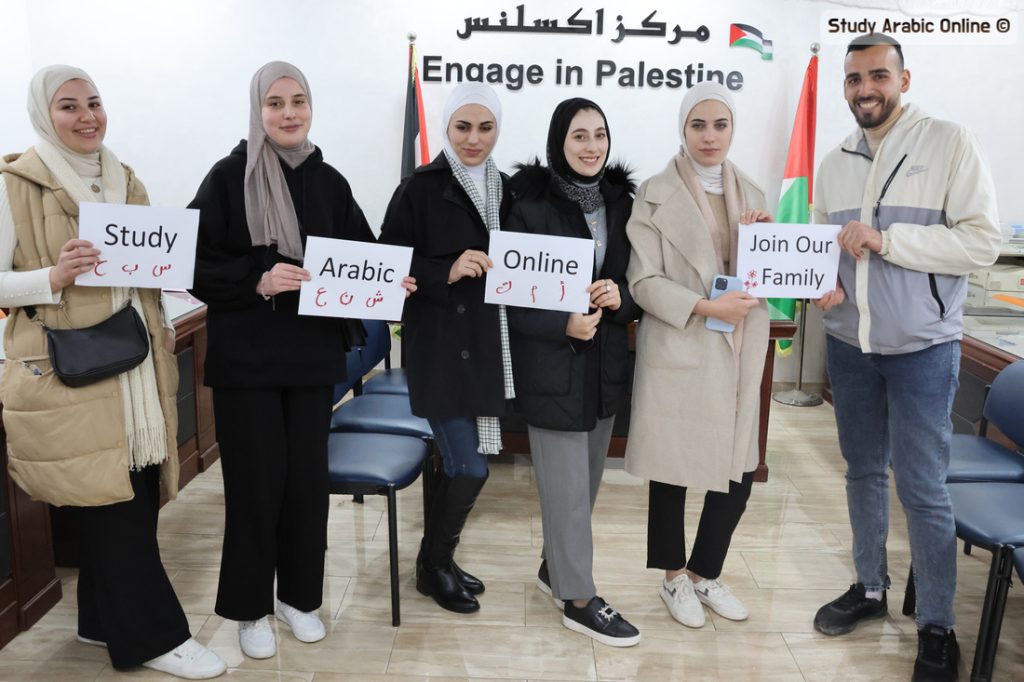
Tailored Modern Standard Arabic (MSA) Lessons
Our Modern Standard Arabic (MSA) lessons are designed to offer flexible, personalized learning experiences. Students can choose between 10 to 100 hours of tailored one-on-one online sessions or opt for small group lessons or private in-person classes, with weekly schedules of 12, 20, or 30 Arabic hours to suit their goals and preferences.
Our Modern Standard Arabic (MSA) Programs in the West Bank, Palestine, include:
| Intensive Modern Standard Arabic (MSA) Course | Intensive Elementary Modern Standard Arabic |
| Modern Standard Arabic Online course | Intermediate Modern Standard Arabic (B1) |
| Upper Intermediate Modern Standard Arabic (B2) | Introduction to Modern Standard Arabic |
| Summer Modern Standard Arabic course | Non-Intensive MSA Lessons |
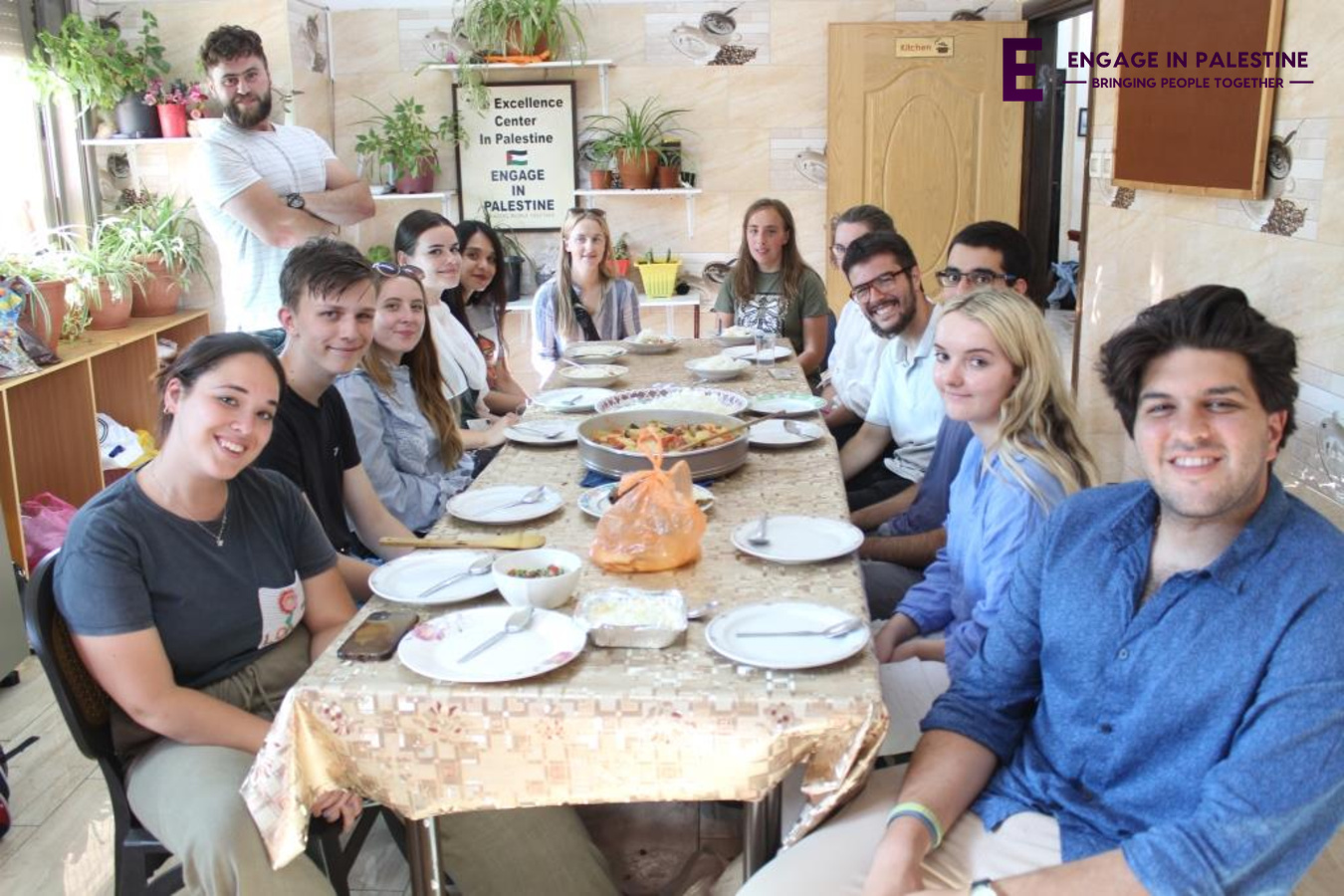
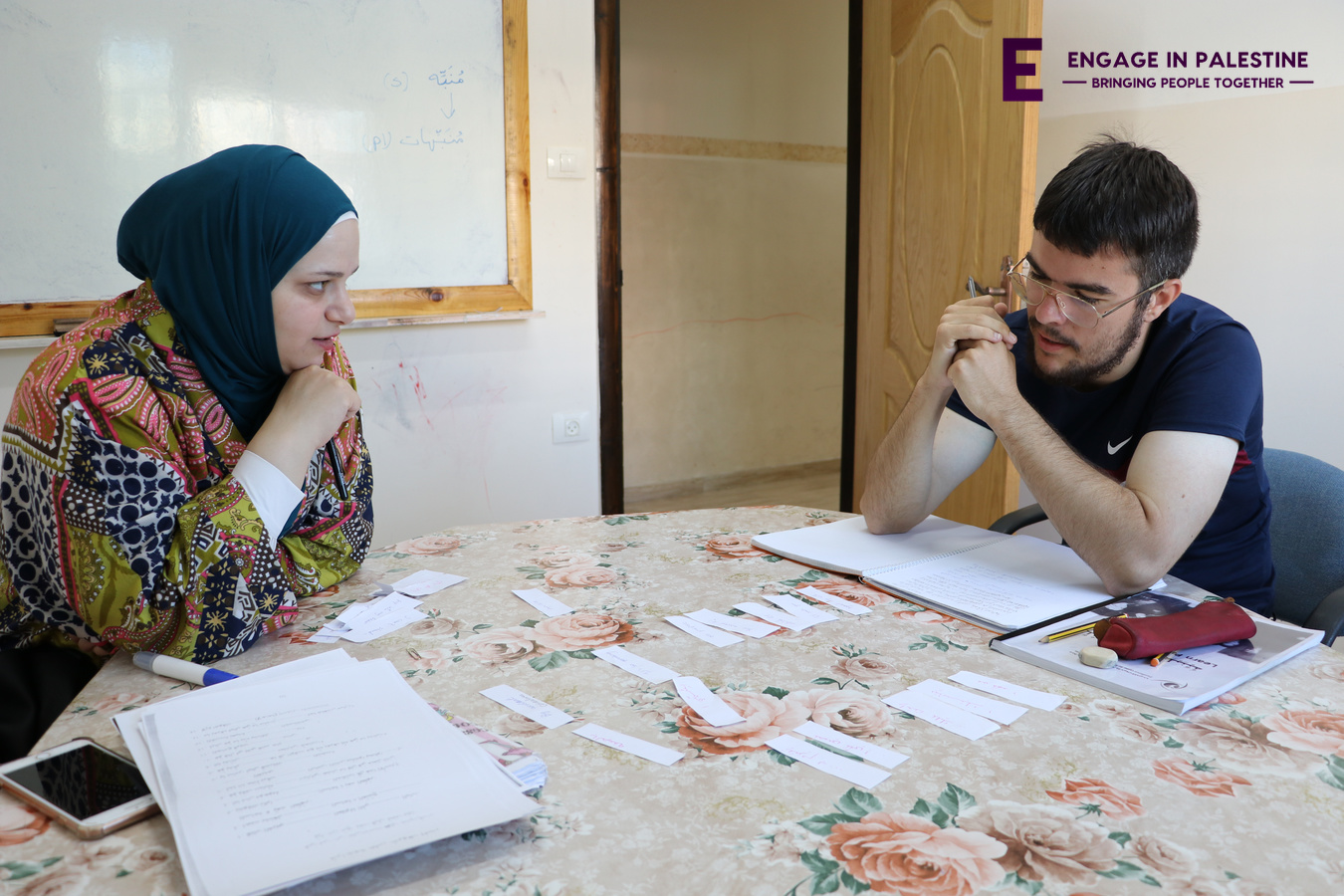
Close Relationship to Classical Arabic
Regardless of dialect, the vast majority of Arabic speakers will be able to recognize Standard Arabic as it derives directly from the Classical Arabic found in the Qur’an and other historical texts. Because of this close relationship to Classical Arabic, MSA has become the standardized form of contemporary written Arabic.
Additionally, many Arabic dialects share much of their lexicon with MSA, similar to classical Latin’s relationship to contemporary romance languages. Students who study Modern Standard Arabic are thus better prepared to interact with and understand the multitude of Arabic dialects.
Online Modern Standard Arabic Courses
Our Modern Standard Arabic Online Program is an excellent choice for anyone interested in learning Arabic from the comfort of their home before venturing into the Arabic-speaking world. This is also an excellent opportunity for students or professionals with wider interests, such as political science and international relations, to gain a greater comprehension of their field while balancing their busy schedules.
This Modern Standard Arabic Online course is especially ideal for university students to gain academic credit towards their degrees, and for recent graduates to maintain their Arabic language proficiency. Additionally, our Modern Standard Arabic online lesson is a suitable option for those who find travel logistically or financially challenging.
Whatever the reason, our Modern Standard Arabic online courses are the perfect way for enthusiastic language learners to dip a toe into Arab culture. If this sounds like the program for you, reach out to us to begin your linguistic journey!
Summer Intensive Modern Standard Arabic Courses
We are pleased to offer the Summer Intensive Modern Standard Arabic Program abroad for the 2025/2026 academic year. This comprehensive program includes both intensive and non-intensive Arabic courses, complemented by area studies.
Each Arabic course spans four weeks, with the flexibility for students to study from one week to over three months. Upon successful completion, students may advance to the next level, contingent upon passing a final exam and delivering an oral presentation.
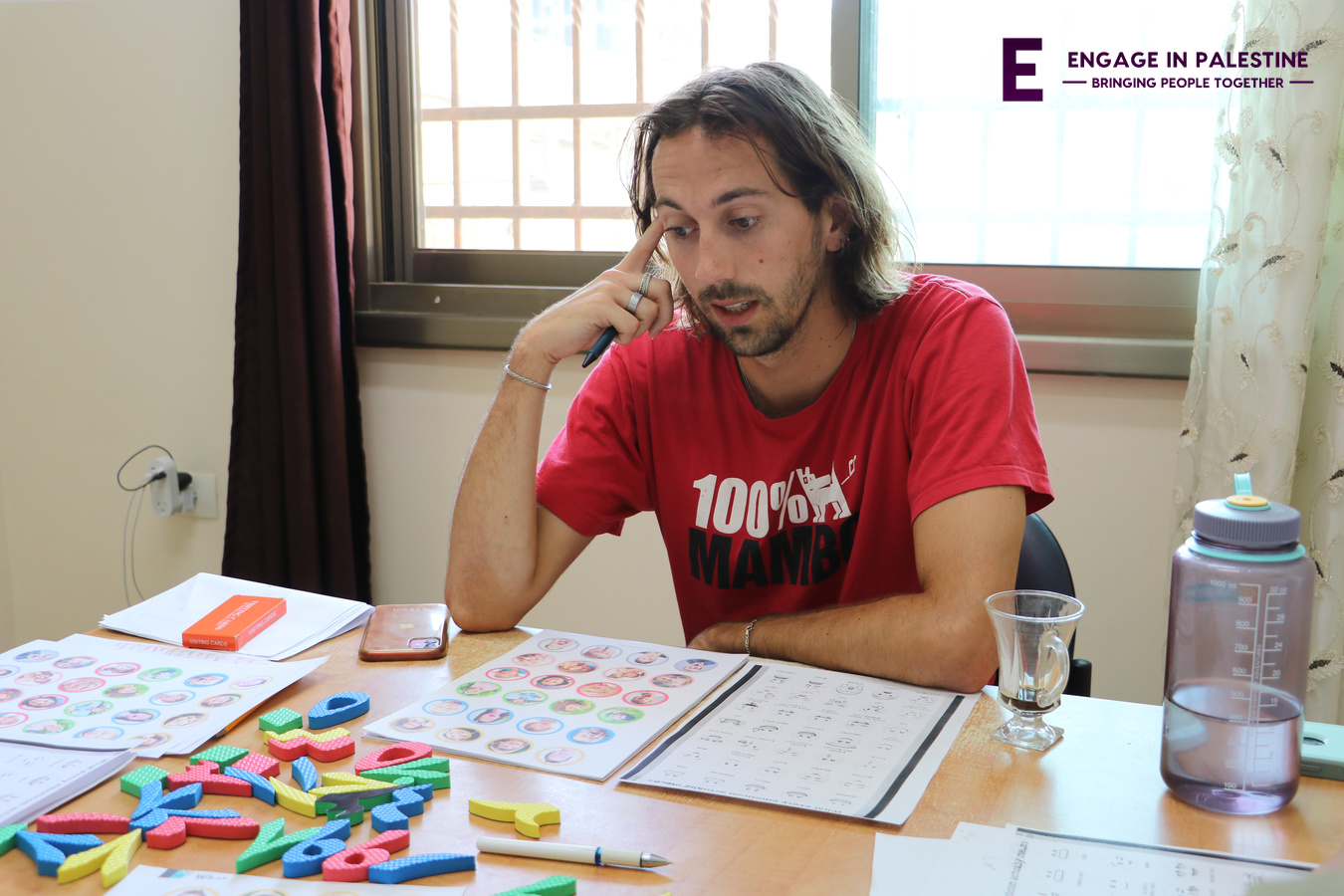
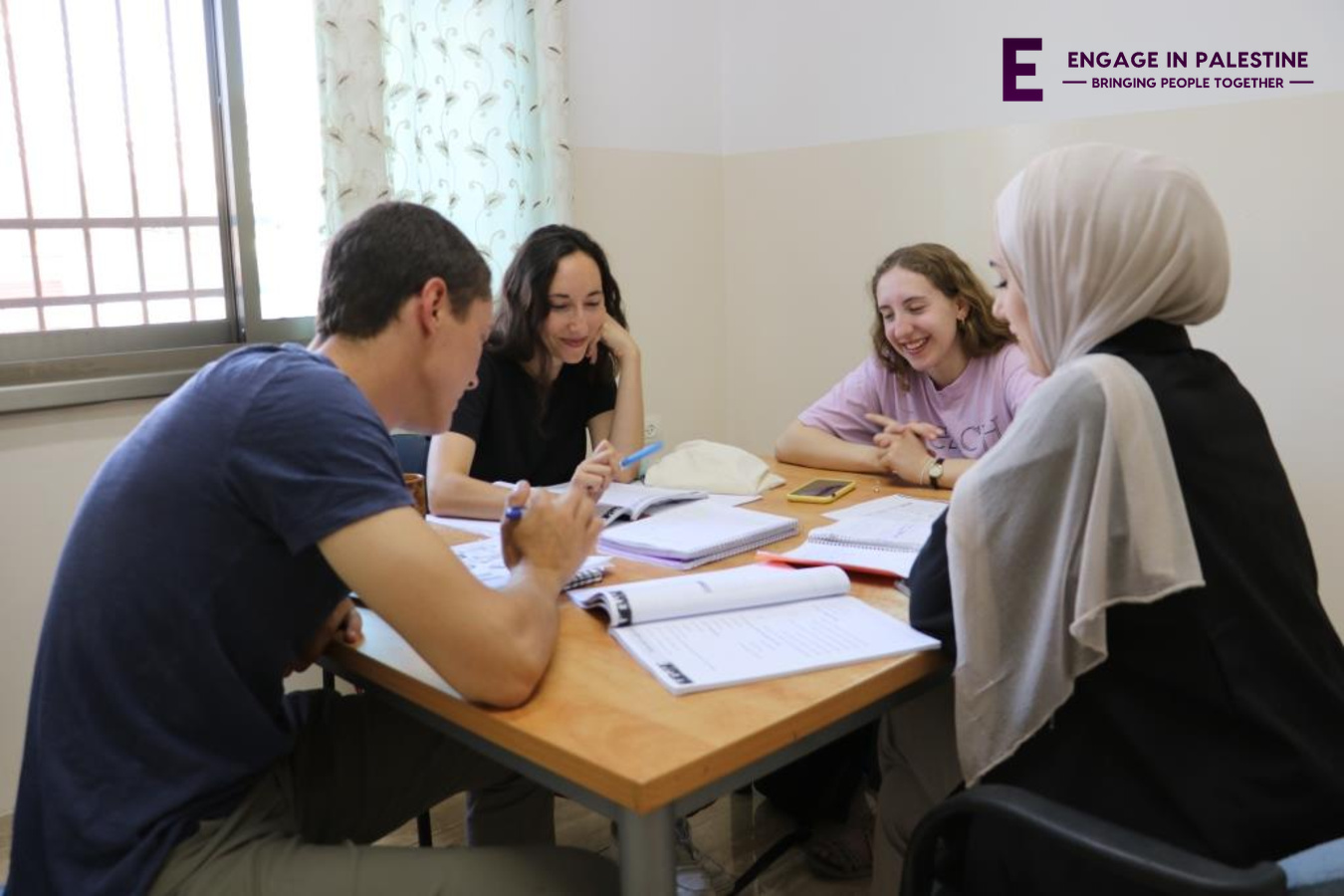
Classical Or Modern Standard Arabic?
The terms Modern Standard and Classical Arabic are sometimes used interchangeably, so it’s important to settle any confusion. Classical Arabic – also known as Quranic Arabic – is a form of Arabic that dates back to the 7th century and the founding of Islam. Modern Standard Arabic is based on this classical style and very closely resembles Classical Arabic, with some minute differences such as their stylization and method of diction.
In contemporary language, Classical and Modern Standard Arabic are considered by many to be synonymous, and even the Arabic word Fus’ha does not differentiate between the two. Therefore, those who enroll in the MSA Program will be well-equipped to understand higher literary forms of Arabic, including those in the Qur’an.
Why Study Modern Standard Arabic?
Modern Standard Arabic is ideal for those who wish to gain a strong foothold in the Arabic language and who plan to expand their knowledge of colloquial variants in the future. The language itself is widespread, as it is the primary form of Arabic taught in schools across the Middle East and North Africa (MENA). Arabic speakers across the region can therefore use it as a means of communication between speakers of different Arabic colloquialisms, and students studying MSA can likewise use it to communicate while traveling throughout the MENA region.
MSA’s use across a wide geographical range makes it an excellent choice for those wishing to venture into the Arabic language. MSA is also incredibly important in areas related to literature, news media, academia, diplomacy, law, international business, and much more. Studying MSA gives one access to the literary world of Arabic and opens doors to professional advancement.
Top Reasons For Learning Modern Standard Arabic
As Arabic continues to be one of the fastest-growing languages globally, students from around the world are increasingly asking what the benefits of learning Modern Standard Arabic are. Here are some of the key advantages of mastering Modern Standard Arabic:
- Modern Standard Arabic is an official language of 25 countries (22 of which are part of the Arab League), making it one of the most widely spoken languages in the world. It is also an official language of the United Nations.
- Modern Standard Arabic is closely related to Classical Arabic, the language of the Qur’an and of all Classical Arabic texts. In this sense, studying MSA gives students a window (or a magnifying glass!) into a wealth of history and culture.
- Modern Standard Arabic is the language of most media broadcasts in the modern Arab world. Students who study MSA will therefore be able to keep up to date with current events through their study of MSA.
- Students studying Modern Standard Arabic will gain access to millions of books and articles on a variety of topics that have been written in MSA.
- There is a multitude of diverse resources and materials available in MSA that can help students learn the intricacies of the language. Although it has been claimed that Modern Standard Arabic is a difficult language to learn, as its grammar is so well-documented, students can use these resources throughout their studies.
- Modern Standard Arabic is the common language that unites all Arab countries. By learning Arabic, students can better understand the Arab world and its diverse cultures.
Why Engage In Palestine?
Engage in Palestine offers students an immersive Arabic experience. Living with a Palestinian host family, students practice Arabic daily with locals and explore the city. Regular excursions to nearby cities, cultural sites, and political landmarks provide a deeper understanding of Palestine’s diversity and history.
The Modern Standard Arabic Immersion Program includes:
- Assistance from well-qualified, attentive Arabic teachers with excellent educational backgrounds
- All books and learning materials
- Palestinian hospitality and a pleasant climate
- Breakfast with other students, interns, volunteers, and staff members six days a week
- The opportunity to live in one of the most politically ambivalent regions in the Middle East
- The opportunity to visit unique tourist attractions from a native perspective,
- including Bethlehem, Ramallah, Nablus, Hebron, Tulkarm, Qalqilyah, Jenin, and the Dead Sea near Jericho
- Access to nearby cities such as Akko, Herzliya, Beersheva, Eilat, Tiberias, Netanya, Safed, Haifa, Tel Aviv, Jerusalem, Masada, Amman, Aqaba, Wadi Rum, and Nazareth
- Visits to various sites in the city of Hebron (including refugee camps, the old city, and different factories)
- Support before departure and during your time in Palestine
- Accommodation with a Palestinian host family or in a shared flat
- A certificate upon completion
As an international student learning Arabic in Palestine, you will also have the opportunity to meet Palestinian university and school students as well as members of the Hebron community and local organizations.
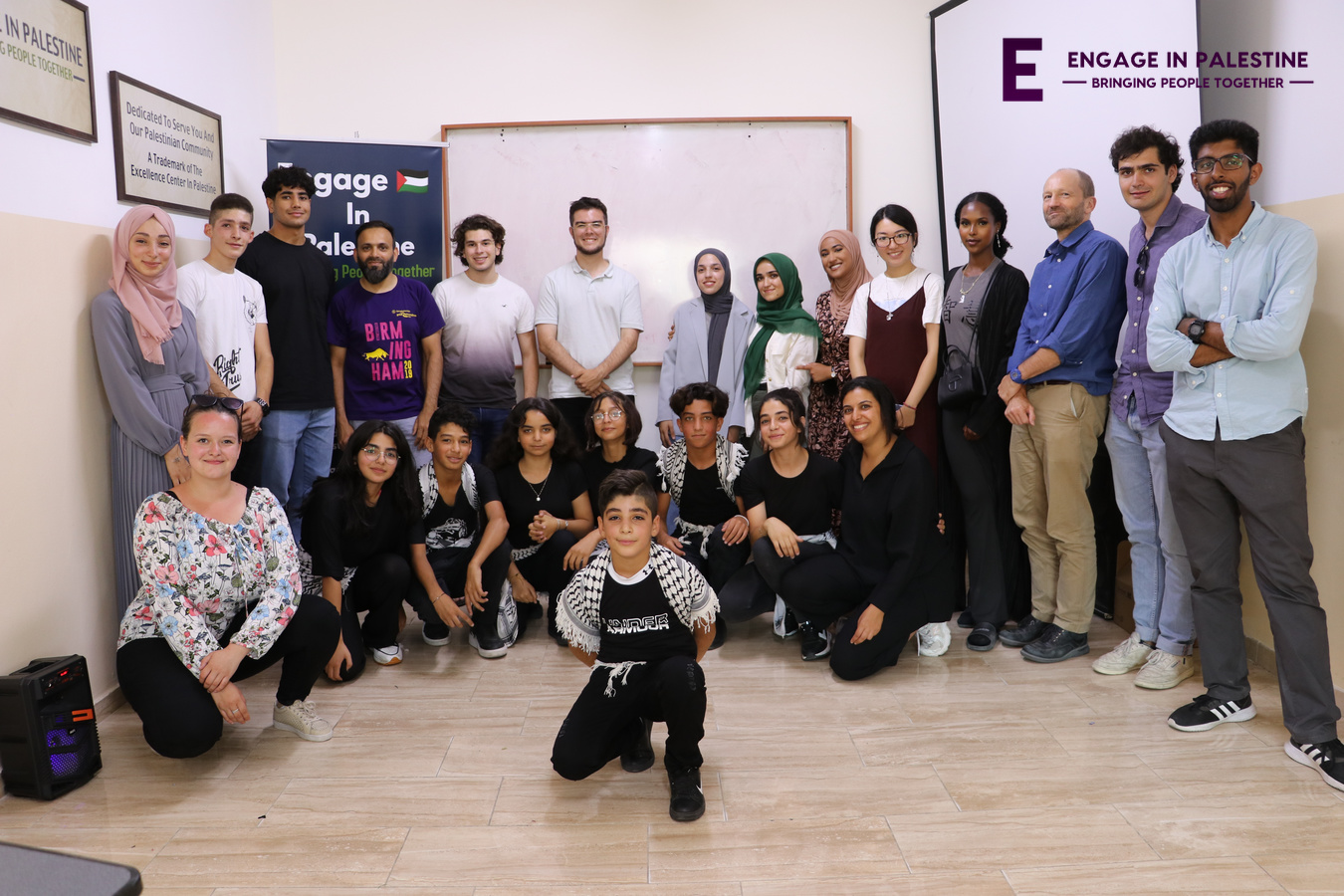
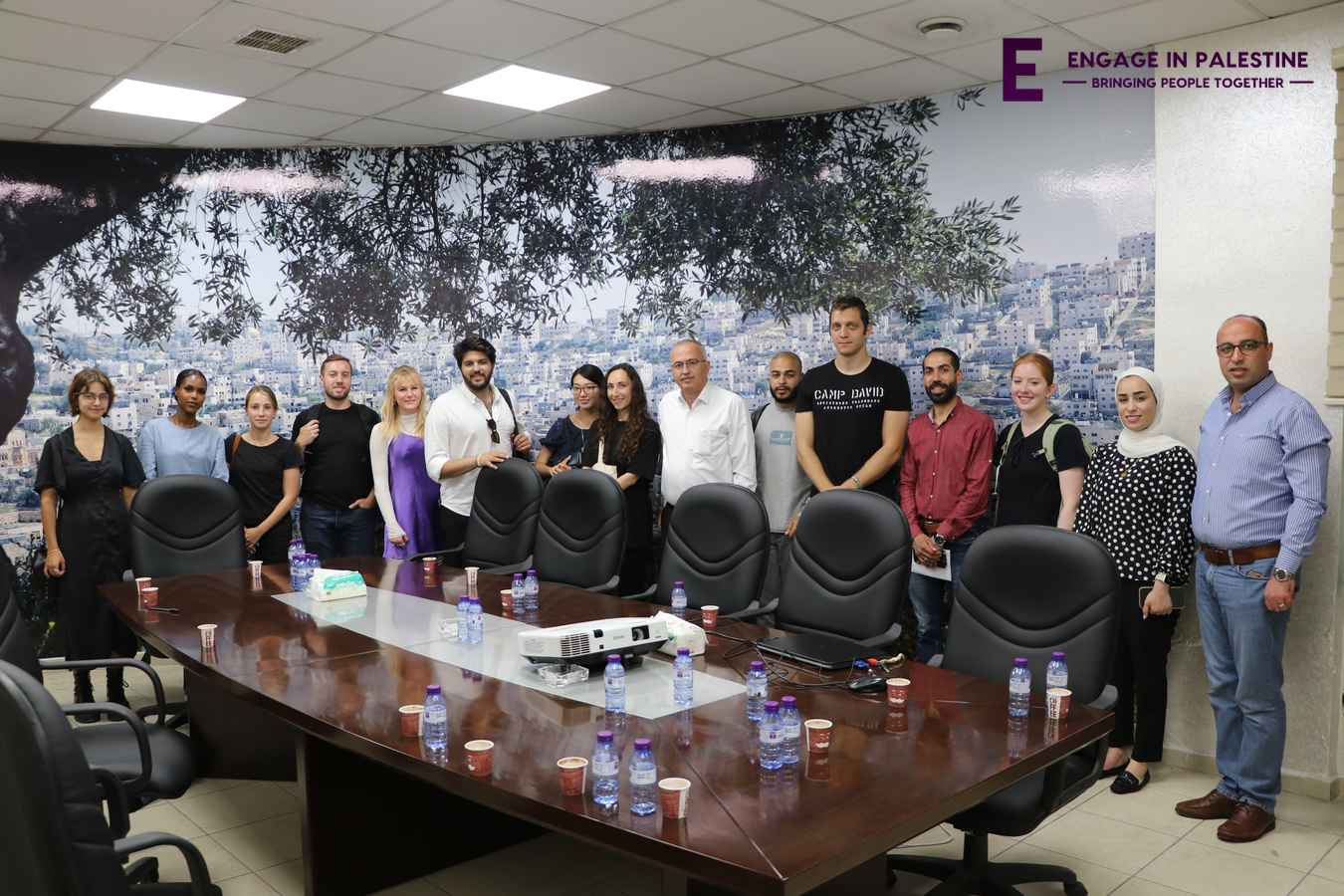
Great Reviews and Community Awards
Engage in Palestine has proudly earned several Community Awards, including recognition as the Best Arabic Language School overseas, one of the best Online Programs for Palestinian Colloquial Arabic Providers, and the Top Provider of Volunteer and Internship Opportunities abroad for the years 2019, 2021, 2022, 2023, and 2024. For further details, please visit our profiles on GoOverseas.com and GoAbroad.com.
- Check out our latest awards here
- +900 Reviews (96.8%) on Gooverseas.com
- +190 Reviews (9.3/10) on Goabroad.com
- Participants’ video testimonials
How Will Courses Be Conducted?
Students enrolled in Engage in Palestine’s Intensive Modern Standard Arabic Program can expect to gain a strong understanding of Arabic while enjoying a fully immersive experience. The Arabic Immersion program will introduce them to Arab culture and customs, while allowing them to converse with native speakers. Students of this program will essentially have two options in terms of class style: one-on-one or small groups.
In the one-on-one Intensive Modern Standard Arabic courses, students will have private lessons with an Arabic language teacher, allowing for a more personalized approach to instruction. This also ensures that the student will have the instructor’s full attention, while allowing the instructor to focus on any questions that the student may have fully.
The second option for students is to study as part of a small group, typically 2 or 3 students. While one-on-one courses are more personalized, small groups allow for structured interaction with peers at similar language proficiency levels, which is often an effective strategy for fostering collective linguistic growth. Students will be able to practice their Arabic together, collaborate on group projects, enjoy class excursions, and much more.
While both styles have their benefits, we recommend that prospective students choose the option that will best suit their unique learning style.
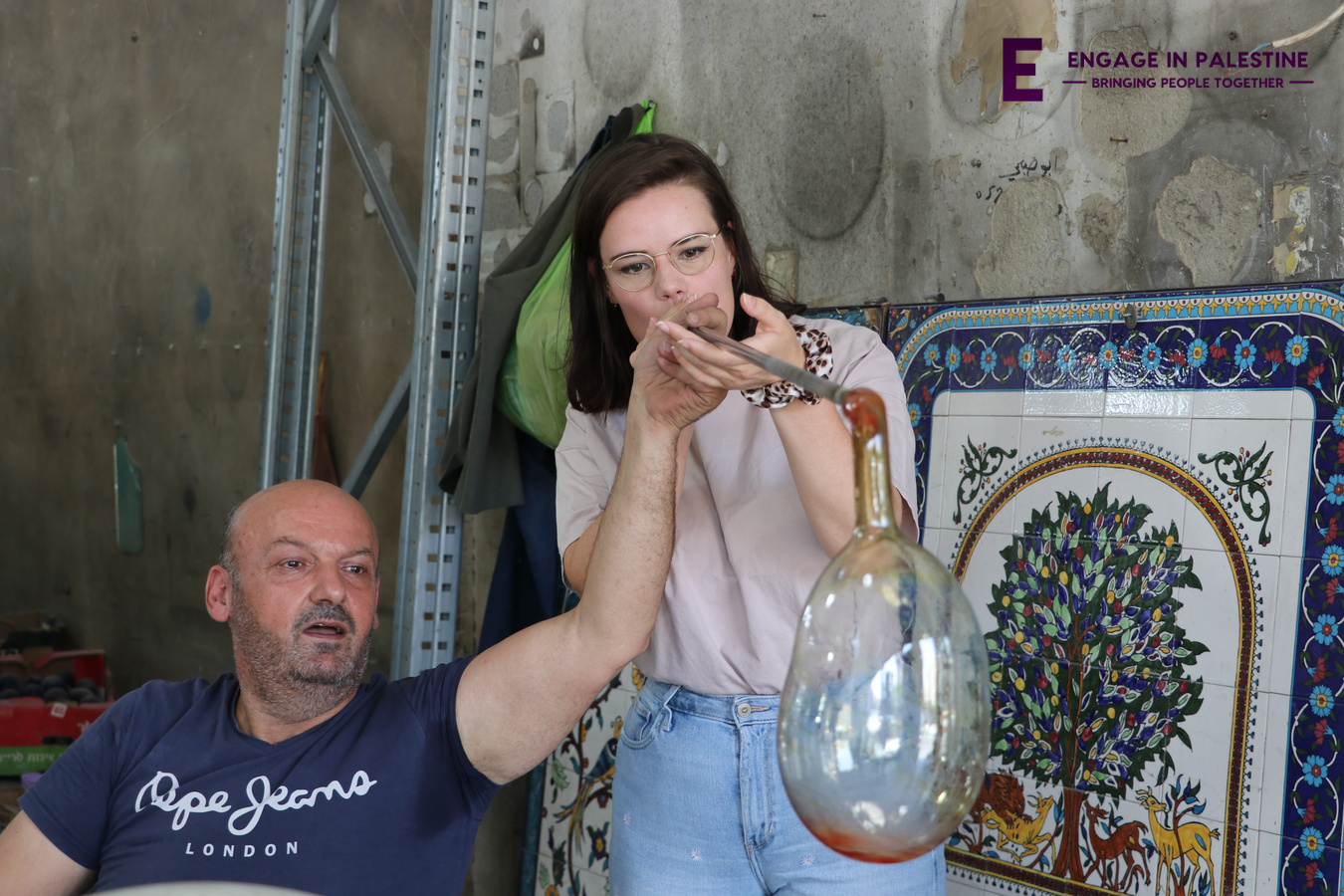
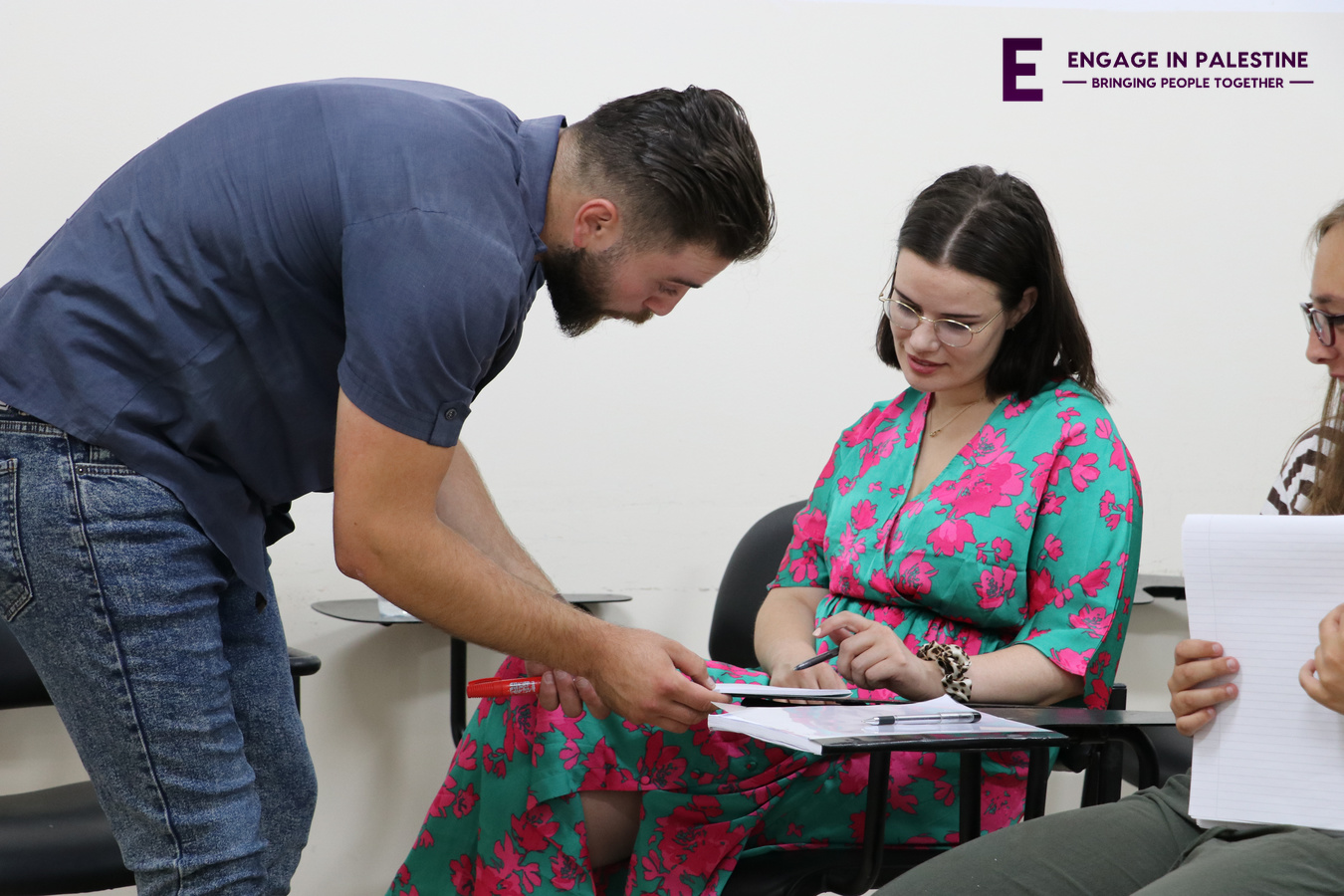
Arabic Course Levels On Offer
Beginner Modern Standard Arabic
The Beginner’s Modern Standard Arabic course is designed for students with absolutely no previous Arabic language experience. This course will introduce students to basic concepts such as the Arabic alphabet, writing systems, grammar fundamentals, phonetics, and common vocabulary and phrases. The Beginner’s MSA program will create a strong linguistic foundation from which students may delve into the diversity and complexity of the Arabic language.
Elementary Level 1 Modern Standard Arabic
The Elementary Level 1 Modern Standard Arabic course is intended to continue where the previous course left off, building on students’ foundational Arabic language knowledge. This entails introducing new vocabulary and slightly more complex grammatical rules into the curriculum, as well as regular reading, writing, and speaking exercises. Upon the completion of this course, students will be able to converse, read, and write about elementary subjects such as shopping, asking for directions, and expressing preferences.
Elementary Level 2 Modern Standard Arabic
The Elementary Level 2 Modern Standard Arabic course will take the subjects addressed in the Elementary Level 1 course and build on the curriculum, expanding into ever more intricate territory.
Generally speaking, this course will diversify vocabulary even further and will expand on topics introduced in the previous level. The Level 2 course will still focus predominantly on elementary subjects, but will also explore more complex grammatical structures.
Intermediate Level 1 Modern Standard Arabic
The Intermediate Level 1 Modern Standard Arabic course will introduce students to a more immersive curriculum than previous levels. This will entail venturing into the Palestinian community of Hebron in order to communicate with native speakers and complete everyday tasks.
Students, for example, may be instructed to purchase items from a Palestinian market, order from a restaurant, discuss their preferences on a certain topic, or engage in other such colloquial activities. Students will also be introduced to subjects which touch upon specific issues such as culture, art, and politics, and will learn the vocabulary needed to converse on these topics in a concise and well-informed manner.
Intermediate Level 2 Modern Standard Arabic
The Intermediate Level 2 Modern Standard Arabic course is aimed at those possessing an extensive Arabic vocabulary who are seeking further immersion in the language. As a result, this course level will focus mainly on comprehension in the context of listening, writing, reading, and speaking.
It will, like the previous course level, involve the practical application of Arabic through interactions with shopkeepers and other locals in the community of Hebron.
Advanced Modern Standard Arabic
The Advanced Modern Standard Arabic course will combine all the previous courses’ curricula, maintaining the immersive nature of the Intermediate levels while expanding into more complex reading, writing, and spoken exercises. Students will also be conducting research in the community of Hebron on a variety of subjects.
With all these methods and materials combined, students will be able to establish a firm understanding of and a grammatical competency in Modern Standard Arabic. Upon completion of this course, students will be able to articulate their thoughts and opinions on complex matters such as politics, history, the environment, and the arts of Palestine.
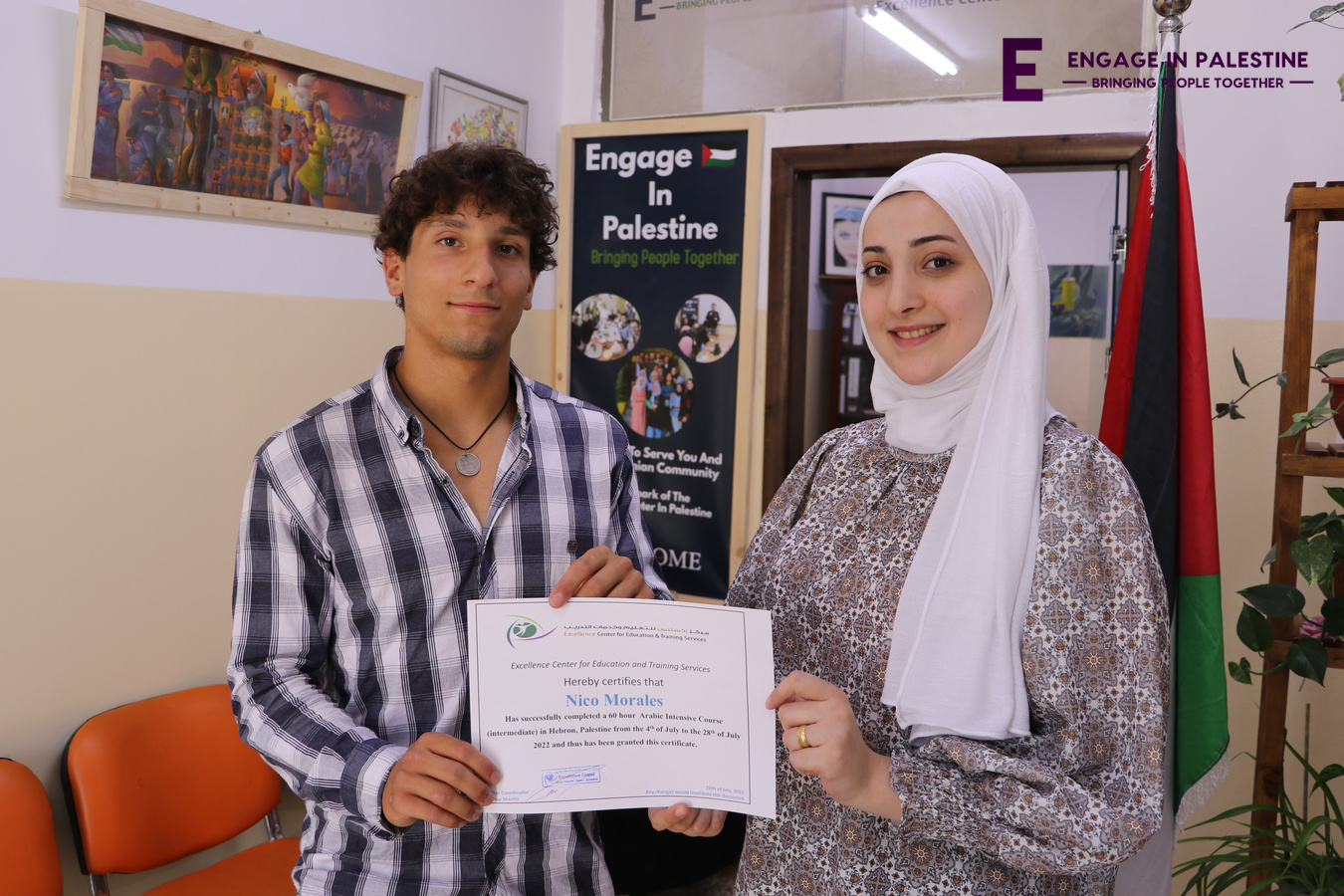
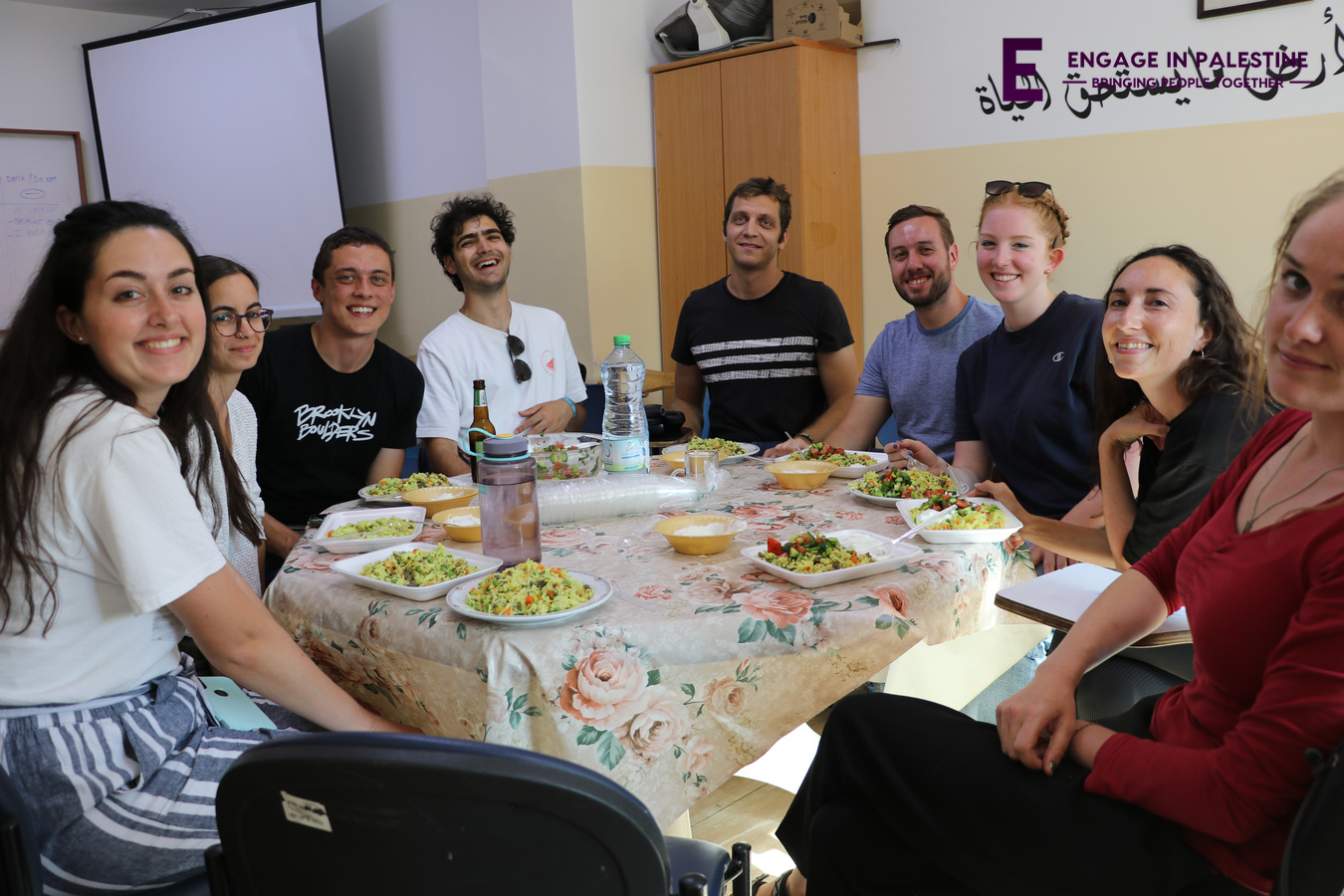
What Is The Difference Between Course Intensities?
Not to be confused with course levels, course intensity signifies the frequency with which classes are held, as well as their level of immersion and the amount of assigned homework.
We recommend that students who are interested in a long-term program of from one to three months duration enroll in non-intensive courses, which will provide them with plenty of in-class instruction (4 hours per day for 3 days a week) while still leaving them with ample time in which to explore the city of Hebron and immerse themselves in Palestinian culture.
The intensive Modern Standard Arabic courses are designed to further immerse students in Arabic language and culture. These courses are held 5 days a week for approximately 4 hours each day, giving a total of around 20 hours of instruction per week. Intensive Arabic courses will also include additional homework and out-of-classroom assignments for participants.
Finally, our super-intensive courses are designed for students who are looking for accelerated Arabic tuition in a completely immersive, high-intensity classroom setting. Super-intensive Arabic courses are conducted 5 days a week for 6 hours per day, giving a total of approximately 30 lesson hours per week. We recommend that those who are intending to study for less than a month enroll in this program.
Which Arabic Course Is For Me?
If you are having difficulty deciding on which course to enroll in, Engage in Palestine offers a free placement test to evaluate students’ Arabic language skills in 4 crucial areas: speaking, reading, writing, and listening.
We are always happy to consult with you if you have any questions regarding course levels or intensity. Our contact information can be found at the bottom of this page, along with our Facebook page and our other social media platforms.
Qualified Teachers
Engage in Palestine prides itself on its faculty and staff, all of whom are native Arabic speakers. Many of our teachers also have degrees in various related fields such as Teaching Arabic to Non-native Speakers, Teaching Arabic as a Second Language, Arabic Cultural Studies, Arabic Literary Studies and many others.
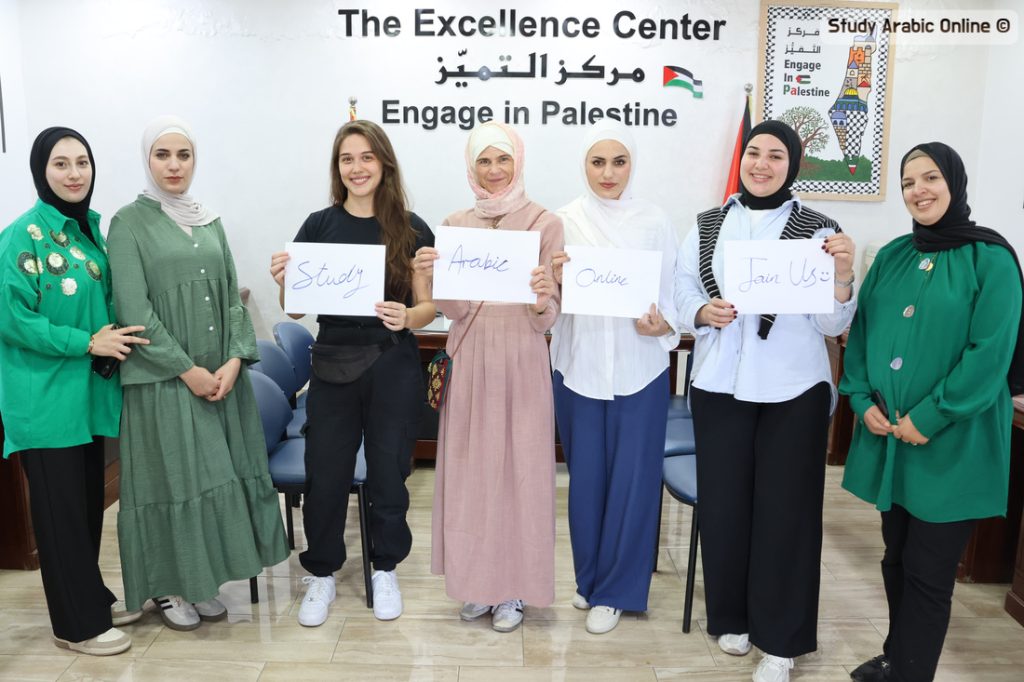
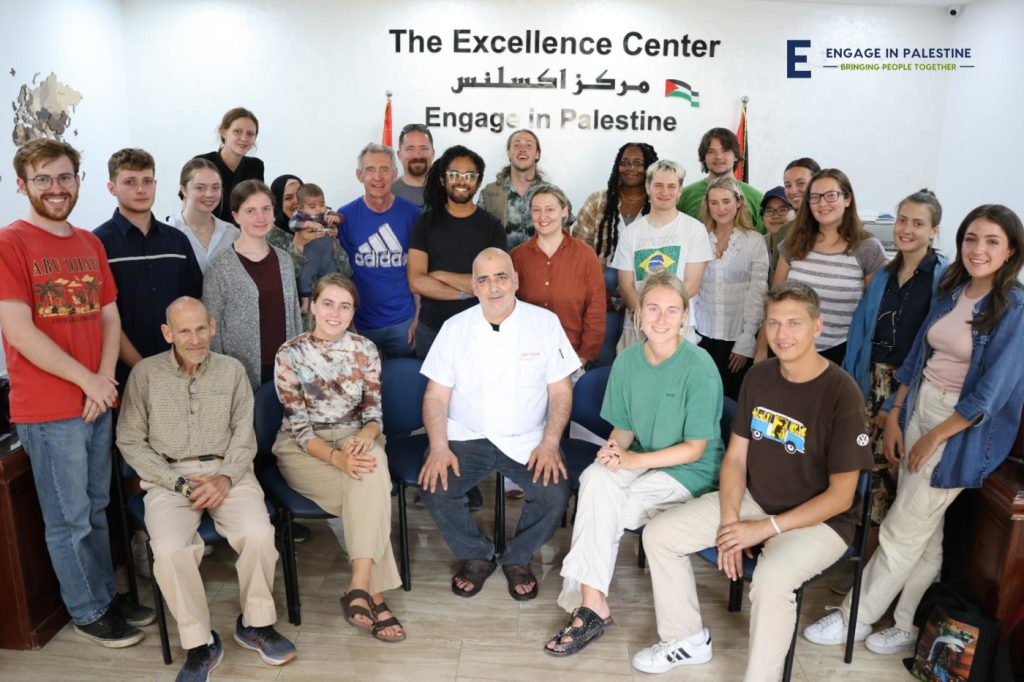
In Which Language Is The Program Run?
Our Modern Standard Arabic programs are tailored for English speakers, emphasizing immersion. As students advance through the levels, English usage in the classroom will decrease to further enhance their Arabic skills. Beyond lessons, students will have ample opportunities to practice Arabic in real-life situations throughout Palestine, ensuring a fully immersive experience.
Overview of Modern Standard Arabic Programs
| Modern Standard Arabic Courses | Super-Intensive Program | Intensive Program | Non-Intensive Program |
| Program Duration | 1-13 weeks | 1-13 weeks | 1-13 weeks |
| Tuition Hours Per Week | 30 | 20 | 12 |
| Days Per Week In Class | 5 | 5 | 3 |
| Lesson Duration | 45 minutes | 45 minutes | 45 minutes |
| Average Class Size | 1-3 students | 1-3 students | 1-3 students |
| Maximum Class Size | 3 students | 3 students | 3 students |
| Program Levels | Beginner Elementary 1 Elementary 2 Intermediate 1 Intermediate 2 Advanced | Beginner Elementary 1 Elementary 2 Intermediate 1 Intermediate 2 Advanced | Beginner Elementary 1 Elementary 2 Intermediate 1 Intermediate 2 Advanced |
| Lesson Periods | Morning 8:30-12:30 Afternoon 12:30-16:00 | Morning 8:30-12:30 Afternoon 12:30-16:00 | Morning 8:30-12:30 Afternoon 12:30-16:00 |
| Application Deadline | No Deadline | No Deadline | No Deadline |
| Start/End Dates | Flexible | Flexible | Flexible |
| Weekly Fee | Starting from 370 Euro Check Price List | Starting from 370 Euro Check Price List | Starting from 370 Euro Check Price List |
| University Credit | Available | Available | Available |
Additional Information
- 30€ one-time registration fee
- No charge for study materials, including books
- Free placement test
- Certificate of completion
- Monthly program fee covers:
- Arabic courses
- Breakfast
- Accommodation
- Center-led excursions in Hebron
- Operational costs
Traveling To Hebron, Palestine
Reaching the Engage in Palestine Center in Hebron may entail a lot of traveling, but it need not be arduous. Although there are some obstacles to be overcome when traveling to Hebron, Engage in Palestine has compiled a list of resources which will help participants reach us in an efficient, safe and practical manner.
Please read our articles below on planning your trip, flying to Palestine, the different routes to Hebron, and on Israeli and Palestinian taxi services:
- How to fly to Palestine
- How to get to Hebron, Palestine
- Planning your trip to Palestine
- How to get from the Ben Gurion Airport (Israel) to Hebron
Living In Palestine
While staying in Hebron, you will have the option of residing with a Palestinian host family or in a lovely apartment just a five-minute walk from the Center. Both options offer unique advantages. Staying in the apartment provides the convenience of privacy while being close to the city center, allowing for easy exploration of Hebron, either independently or with fellow participants.
Alternatively, residing with a Palestinian host family offers an intimate view of daily Palestinian life, customs, and culture, with opportunities to participate in family gatherings and sample authentic Palestinian cuisine. This option promises a truly immersive cultural experience.
Whichever housing option you choose, your time in Palestine is guaranteed to be enriching and unforgettable!
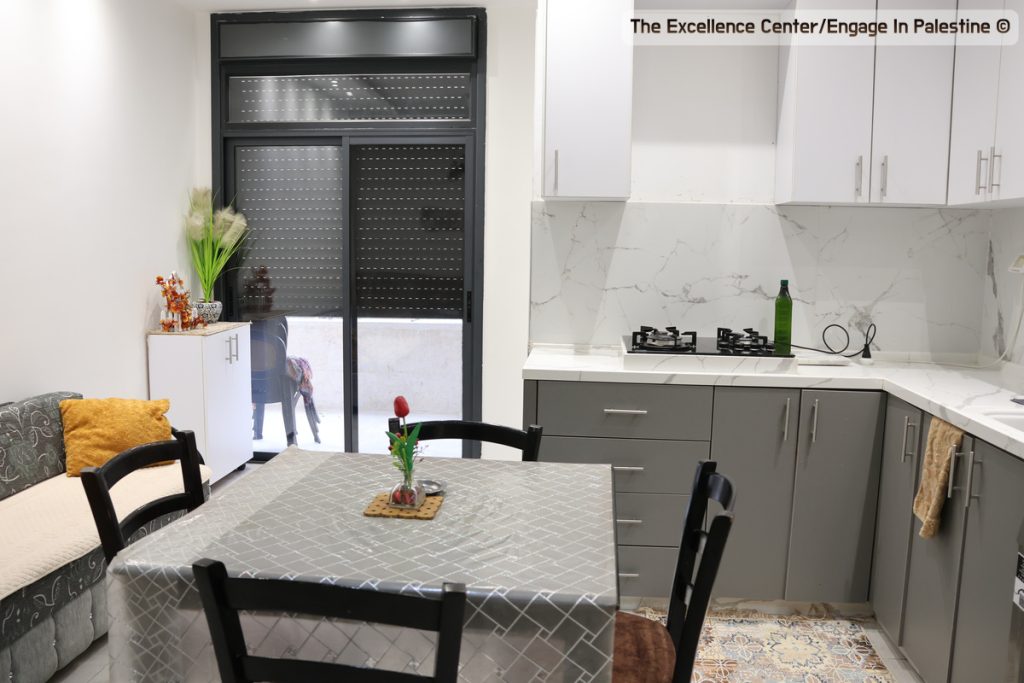
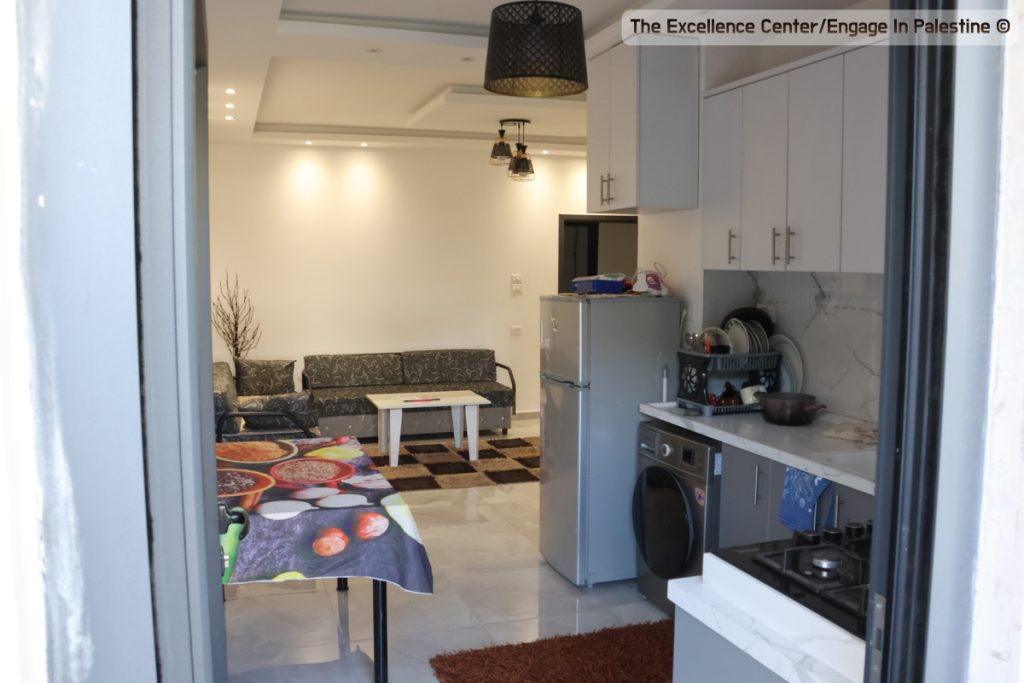
What Is The Minimum Duration Of The Intensive Course?
The minimum duration for the Modern Standard Arabic Program is one week. However, since the Intensive Courses last 4 weeks, most students typically register for a period ranging from 4 to 13 weeks. For online lessons, a minimum of 10 hours must be booked.
How Long Does It Take To Complete One Intensive Course?
It takes 4 weeks of intensive study in the Modern Standard Arabic Program to complete one course, which consists of approximately 80 hours of class time.
Summary
Our Modern Standard Arabic immersion programs are perfect for those seeking a strong foundation in the grammatical structure of Arabic, an appreciation for its literary richness, or practical skills for careers in law, diplomacy, journalism, academia, or international business.
Studying Modern Standard Arabic in Palestine provides a unique opportunity to immerse yourself in the language and culture, making it easier to learn regional dialects across the Arab world. MSA also offers valuable linguistic context for traveling throughout the Middle East and North Africa, as well as for engaging with the Arab diaspora globally.
Modern Standard Arabic is an essential asset for anyone traveling through Arabic-speaking countries, from Morocco to Iraq and the Gulf. If you’re ready to begin your Arabic learning journey, please see the instructions below to start your program with Engage in Palestine!
How To Apply
If you’re interested in joining our Study Modern Standard Arabic Program, please contact us at Info@ecpalestine.org. We aim to respond to your inquiry within one business day.
In the subject line of your email, please write “Study Modern Standard Arabic,” and we will send you an application form. Once completed, kindly return the form to us to begin the enrollment.
Find Us Online
WhatsApp: +972 599 479 880
Website: https://ecpalestine.org/
EC Website: https://excellencenter.org/
Volunteer in Palestine: https://volunteerinpalestine.org/
Study in Palestine: https://studyinpalestine.org/
Instagram: https://www.instagram.com/excellence.center
